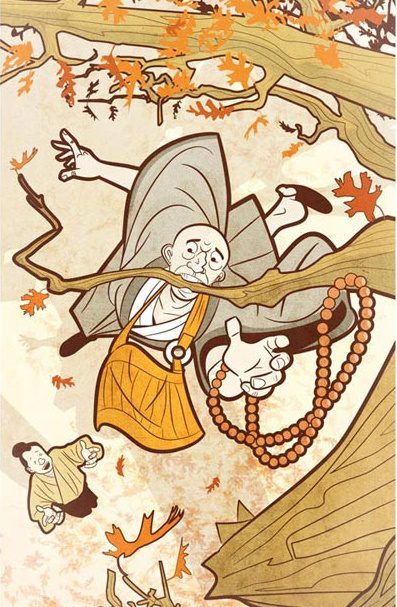In that wonderful anthology of Zen’s koans, the Wumenquan, the Gateless Gate, the fifth case “Xiangyan: Up a Tree” goes like this:
The priest Xiangyan said, “It is as if you were up in a tree. You’re hanging from a branch by your teeth. Your hands can’t grasp anything. Your feet are flailing about. Suddenly someone from below asks, “What is the meaning of Bodhidharma’s coming from the West?” If you don’t answer, you fail your responsibility. If you do, you die. What will you do?
So, a couple of things. Think of this a dream. For whatever reason all you have is hanging by your teeth. Your hands and feet are useless. There is only life in that tight grasping. Death in any other choice.
And out of the dream realms the call. That question about Bodhidharma the dream founder of Zen in China and his coming to our rescue is about the fundamental point of our lives. It is about the why. It is about the how. And, it meets us where we are, clinging to life with our teeth.
There are a couple of possible responses to this question. And in some ways none of them seem completely right to me. But, in the notes that pass on within the tradition I practice in there’s an anecdote about the modern Rinzai master Soen Nakagawa. He is said to have read the scriptural account of Jesus’ execution and that exchange with the two thieves. And his response to the “good” thief, “You’ll be with me in paradise.” This really bothered the roshi. That is until he was told in the Russian church that line is translated as “You are with me in paradise.”
Clinging by our teeth. Barely hanging on. Life and death in each breath. Pain and aching jaws. And from below a voice crying out for held. All of it together.
Paradise.
If a Zen koan is a matter to be made clear, as Robert Aitken Rosh tells us, what is the matter here? And what is clear?
Paradise hangs in the balance…
Image by Mark Morse…













